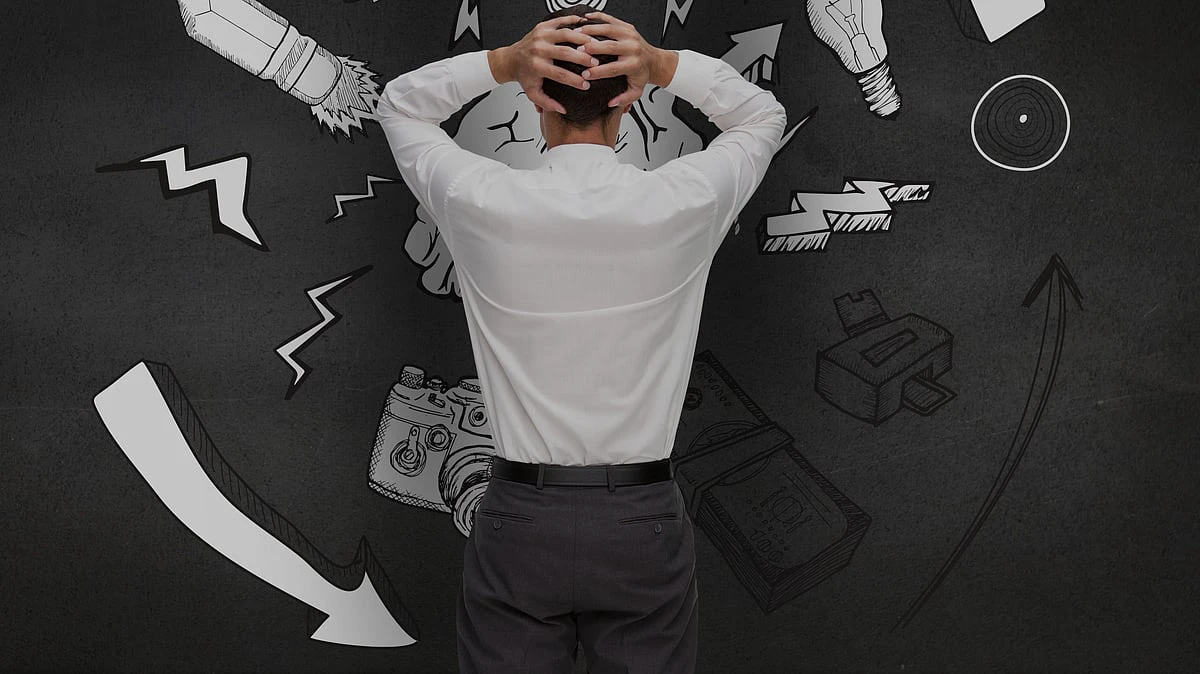When people feel stressed, they naturally reach for whatever brings quick comfort. Everyone wants relief. Some habits do help for a moment: a distraction, a small escape, or a calming routine.
But a few common stress-relief behaviours can slowly add more pressure rather than reducing it. They may feel soothing today but create bigger emotional weight tomorrow. Here are six habits many people rely on, why they seem helpful at first, how they can backfire, and what healthier coping options might look like instead.
Overthinking every detail
Someone under stress may believe that thinking harder will bring clarity. They replay conversations, imagine outcomes, and try to predict what might go wrong. It feels like preparing or problem-solving. But, overthinking often leads to mental exhaustion. Instead of answers, the person ends up with worry loops. The problem doesn’t get solved, it just feels heavier.
Alternative: Writing the situation down and choosing one small step usually does better than thinking in circles. Another idea is to give the mind a limit – for example, allow ten minutes to think or journal, then move on to another activity.
“Excessive thinking combined with lack of sleep is one such example – it may feel comforting, but it increases anxiety, reduces motivation, and delays problem-solving. The same applies to procrastination, wandering aimlessly, card games or mild gambling, and even avoiding work as these distractions only allow stress to multiply quietly,” explains Dr. Harish Shetty, Psychiatrist, Dr. L H Hiranandani Hospital.
Eating for comfort
Food, especially sweet or salty snacks, can bring a warm moment of comfort. It can feel like a break from stress. The comfort usually fades quickly. The person might feel guilt or physical discomfort afterward, which can increase stress instead of easing it. Over time, emotional eating can become a habit that’s hard to break.
A healthier approach: Before reaching for food, a person can pause and check in with themselves: Am I actually hungry, or just overwhelmed?If the hunger is emotional, slow breathing, a short walk, or drinking water or tea, can calm the nervous system more effectively.
Ekta Dharia, Clinical Psychologist and Psychotherapist, says, “Emotional eating often feels comforting in the moment because food can temporarily soothe overwhelming feelings. However, this relief is short-lived and is usually followed by guilt, heaviness, or increased stress. The underlying emotions remain unaddressed. A healthier approach is to pause and identify what one is actually feeling, and use mindful eating or simple grounding techniques to cope. True relief comes from acknowledging emotions, not numbing them with food.”
Avoiding the stressful thing
Putting off a difficult task or conversation provides instant relief. The person doesn’t have to deal with discomfort right now, which feels easier. The problem tends to grow. Bills pile up, work becomes more rushed, or emotions build. The stress never truly goes away, it waits.
Alternative: The “two-minute rule” can help: start the task for just two minutes. Most of the time, once the task begins, it feels less scary and easier to continue.
“There is a growing tendency to reach for quick ‘mood shifters’ when under stress, but these offer only short-term relief and often worsen the issue,” says Dr. Harish Shetty.
Alcohol as a stress- reliever
Alcohol can soften tense feelings and provide a temporary sense of calm. Many people associate it with unwinding at night. However, alcohol unsettles sleep and mood, even when it seems to relax the body. Over time, stress may feel heavier, not lighter. It can also become an emotional crutch.
Alternative: Evening calming routines can help the brain settle naturally: warm showers, light stretching, soft music, gentle reading, or herbal tea can create relaxation without negative effects.
Constantly venting
Talking about our feelings can release emotional pressure. But, if venting becomes the only habit, you stay focused on the problem but not the solution. The person may stay stuck in the same emotional state. The brain keeps rehearsing the stress instead of healing from it.
Balanced approach
After expressing feelings, asking a simple question can shift momentum:”What small thing could help improve this?”
Escaping into screens and social media: Scrolling or watching videos offers distraction. The mind gets a break. However, screens often leave the mind overstimulated and tired. Social media can also create comparison, which adds stress rather than easing it. The original stress is still there later, sometimes stronger.
Alternative: Short screen breaks during the day even five minutes of stepping outside, breathing fresh air, or stretching can calm the system and reset the mind more effectively.
Dipal Mehta, a Mumbai-based practising counsellor and psychotherapist, says, “Many people turn to emotional eating, constant venting, overthinking, avoiding problems, alcohol, or excessive screen time because these habits bring quick comfort. However, they only provide temporary relief and often worsen stress in the long run. Healthier alternatives like mindful eating, solution-focused conversations, setting worry limits, taking small action steps, choosing non-alcohol relaxation routines, and reducing screen time help maintain emotional balance more sustainably.”
Relief doesn’t always mean healing. Many stress-relief habits comfort the moment but add pressure later. Gentler, slower, and smaller coping steps can help a person actually recover rather than escape. Making changes take time. Even choosing one healthier habit can make stress feel lighter and life feel more manageable over time.
